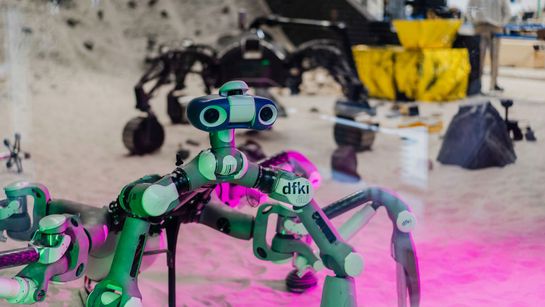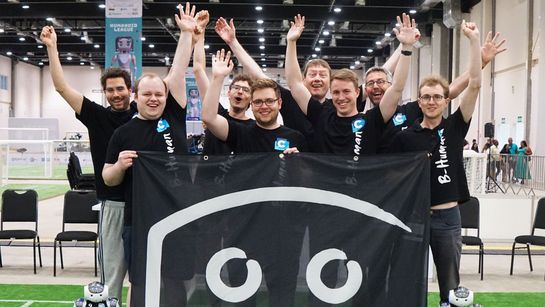
Cyber-Physical Systems
The Cyber-Physical Systems (CPS) research department develops intelligent, networked systems and focuses on improving their reliability, safety, and security. Today, such systems are used in smartphones, cars, or airplanes. Their applications are spreading, and their complexity will continue to increase – which will raise demands on their safety and accuracy in the future.
The research department is headed by Prof. Dr. Rolf Drechsler, who is also head of the Group of Computer Architecture at the University of Bremen.
What are Cyber-Physical Systems?
Cyber-Physical Systems integrate digital (cyber) technologies into the physical world.
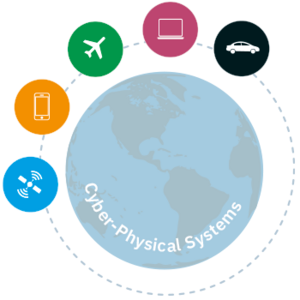
Our everyday lives depend on a complex network of embedded and autonomous systems -– from smartphones and cars to medical technology applications and cloud computing. They combine physical hardware components such as sensors, actuators, and controllers with software and network technologies to create systems that can interact with the physical world in real time. Seamless integration between the cyber and physical domains is required to guarantee the desired functionality. As the complexity of systems increases, so do the requirements for security, accuracy, and reliability, confronting researchers and developers with a variety of challenges.
The Cyber-Physical Systems research department is addressing these challenges with a young and international team of computer scientists and mathematics working on system design reliability and correctness from the bottom up.
New methods, test procedures, and applications are developed in close cooperation with our industrial partners and academic research groups, in particular the Computer Architecture Group at the University of Bremen. These collaborations aim to bring cutting-edge research into application as fast as possible.
Our Research
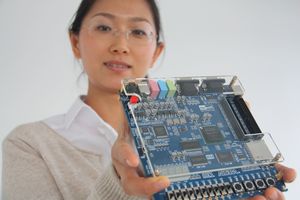 © DFKI, Lisa Jungmann
© DFKI, Lisa JungmannWhere a mere push of a button sets an electronic system in motion, huge amounts of data are processed in the background: Numerous hardware and software components follow a flow chart that specifies the system's function. As the complexity of the systems increases, so do the requirements. According to a study by the German Federal Ministry of Education and Research (BMBF), more than 90 percent of microprocessors are embedded in systems today.
The more complex these systems are and the more they are connected to other systems via networks, the higher the risk of unforeseen interactions. Nevertheless, to ensure safety, robustness and reliability, new, automated, and intelligent test procedures and quality assurance methods must be continuously designed. This is particularly relevant in safety-critical application fields.
CPS scientists base such methods on mathematical proofs, so-called formal methods, which detect safety errors in the design process as early as possible. In addition, these experts develop new quality assurance methods for the design of complex electronic chips and systems. The focus is on approaches for optimizing efficiency, for example minimizing resource consumption, optimizing computing speed or the systematic development of innovative solutions for specific applications.
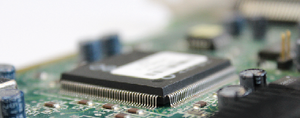
Tools and Methods for System Design
The expertise of CPS includes hardware and low-level software as well as verification by testing, symbolic execution, or so-called theorem provers, which derive new, validated statements from a knowledge base. A large part of this work is based on the RISC-V architecture.
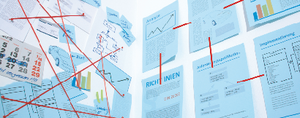
Formal Models
Formal models are the basis for formal verification. The starting points here are ontologies and theorem provers. Ontologies are formal, ordered representations of concepts and relations that organize the knowledge of an application domain. Theorem provers use software to recombine existing knowledge and prove that new facts can be derived from it. Thanks to such formal models, it is possible to guarantee that safety-critical applications always function without errors.

Smart Environments
Smart environments are a great opportunity to apply cyber-physical systems and newly developed methods. This research area focuses on the Bremen Ambient Assisted Living Lab (BAALL) and includes the areas of assistance systems, user interaction, health, and quality of life.
Interested in a collaboration?
Your contact person for a joint AI project:
Prof. Dr. Christoph Lüth
Christoph.Lueth@dfki.de
Phone: +49 421 218 59830
Contact
Assistant to the management:
Kristiane Schmitt, M.A.
Kristiane.Schmitt@dfki.de
Phone: +49 421 218 59840
Deutsches Forschungszentrum für Künstliche Intelligenz GmbH (DFKI)
Cyber-Physical Systems
MZH
Bibliothekstr. 5
28359 Bremen
Germany
Cartesium
Enrique-Schmidt-Str. 5
28359 Bremen
Germany
